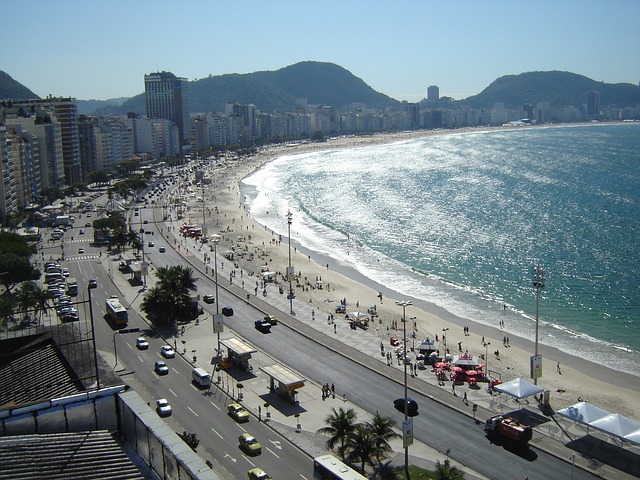Brazil's's deteriorating fiscal position, political turmoil and the ongoing Lava Jato corruption investigation continue to negatively affect the credit quality of issuers in both the public and private sectors through 2016, says Moody's Investors Service.
These factors have led to a decline in employment, consumption and real wages, leading Moody's to forecast that economic activity in Brazil will contract by 3% in 2015 and 1% in 2016.
"We do not see how Brazil's fiscal position can improve in the short term given the lack of political consensus, which has kept the current administration from delivering primary surpluses large enough to arrest rising government debt ratios," says Mauro Leos, a Moody's Vice President and Senior Credit Officer. "We do not believe Brazil can achieve real growth of 2% and primary surpluses of at least 2% of GDP until 2017-18, which are required to stabilize the debt-to-GDP ratio."
As a result, the credit profiles of issuers in most sectors will be pressured by softer demand, rising borrowing costs, climbing delinquencies and lower investment, according to the report "Economic, Political Stress Roil Issuers in Both Public and Private Sectors."
Although most of the investment-grade non-financial issuers in Brazil that Moody's rates have adequate liquidity through at least mid-2016, access to the international markets will be more expensive for non-investment-grade issuers, affecting their expansion and capital improvement plans.
Weak oil, metals and agricultural prices will hurt the operating performance for Petrobras, Vale and the other commodity producers. The Brazilian recession and low consumer confidence will lead to softer demand for telecom, homebuilding and airlines companies, but the weak currency will benefit protein and paper forest products exporters. Meanwhile, Lava Jato has significantly strained Brazil's construction sector.
Even infrastructure companies not associated with Petrobras will face higher funding costs as both domestic and global interest rates rise and investor concern regarding the country's fiscal position limits access to the international markets.
Risks are increasing for banks as well, with the stock of non-performing loans starting to climb as unemployment and production delays rise, and profitability under pressure, although banks remain adequately capitalized and should be able to absorb any losses.
Losses in asset-backed securitizations will increase as well as a result of higher defaults and lower recoveries for transactions backed by consumer assets.
Some sectors will remain unscathed by Brazil's weak economy, however. Protein and paper/forest products exporters will benefit from the weak currency, which will translate into increased revenues in domestic currency for their exports. Moody's expects that electricity distribution companies will continue to tap domestic markets to fund capital needs in response to rising energy costs, and that lower energy demand will benefit hydro generation companies.



 UBS Projects Mixed Market Outlook for 2025 Amid Trump Policy Uncertainty
UBS Projects Mixed Market Outlook for 2025 Amid Trump Policy Uncertainty  Energy Sector Outlook 2025: AI's Role and Market Dynamics
Energy Sector Outlook 2025: AI's Role and Market Dynamics  U.S. Treasury Yields Expected to Decline Amid Cooling Economic Pressures
U.S. Treasury Yields Expected to Decline Amid Cooling Economic Pressures  Wall Street Analysts Weigh in on Latest NFP Data
Wall Street Analysts Weigh in on Latest NFP Data  China's Refining Industry Faces Major Shakeup Amid Challenges
China's Refining Industry Faces Major Shakeup Amid Challenges  Global Markets React to Strong U.S. Jobs Data and Rising Yields
Global Markets React to Strong U.S. Jobs Data and Rising Yields  China’s Growth Faces Structural Challenges Amid Doubts Over Data
China’s Growth Faces Structural Challenges Amid Doubts Over Data  Stock Futures Dip as Investors Await Key Payrolls Data
Stock Futures Dip as Investors Await Key Payrolls Data  Mexico's Undervalued Equity Market Offers Long-Term Investment Potential
Mexico's Undervalued Equity Market Offers Long-Term Investment Potential  Fed May Resume Rate Hikes: BofA Analysts Outline Key Scenarios
Fed May Resume Rate Hikes: BofA Analysts Outline Key Scenarios  Moody's Upgrades Argentina's Credit Rating Amid Economic Reforms
Moody's Upgrades Argentina's Credit Rating Amid Economic Reforms  European Stocks Rally on Chinese Growth and Mining Merger Speculation
European Stocks Rally on Chinese Growth and Mining Merger Speculation  U.S. Banks Report Strong Q4 Profits Amid Investment Banking Surge
U.S. Banks Report Strong Q4 Profits Amid Investment Banking Surge  Moldova Criticizes Russia Amid Transdniestria Energy Crisis
Moldova Criticizes Russia Amid Transdniestria Energy Crisis  Indonesia Surprises Markets with Interest Rate Cut Amid Currency Pressure
Indonesia Surprises Markets with Interest Rate Cut Amid Currency Pressure  UBS Predicts Potential Fed Rate Cut Amid Strong US Economic Data
UBS Predicts Potential Fed Rate Cut Amid Strong US Economic Data  US Futures Rise as Investors Eye Earnings, Inflation Data, and Wildfire Impacts
US Futures Rise as Investors Eye Earnings, Inflation Data, and Wildfire Impacts 































